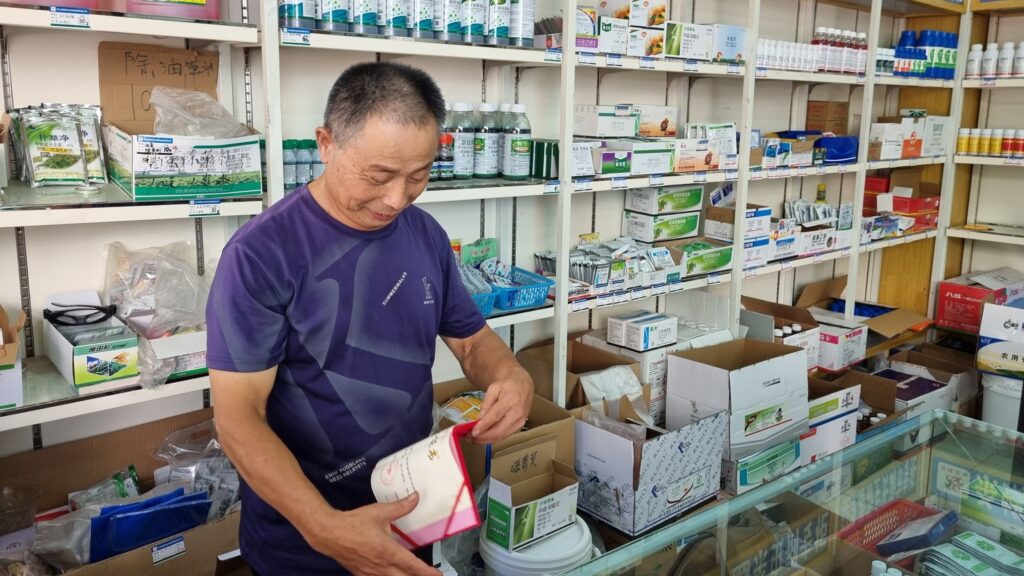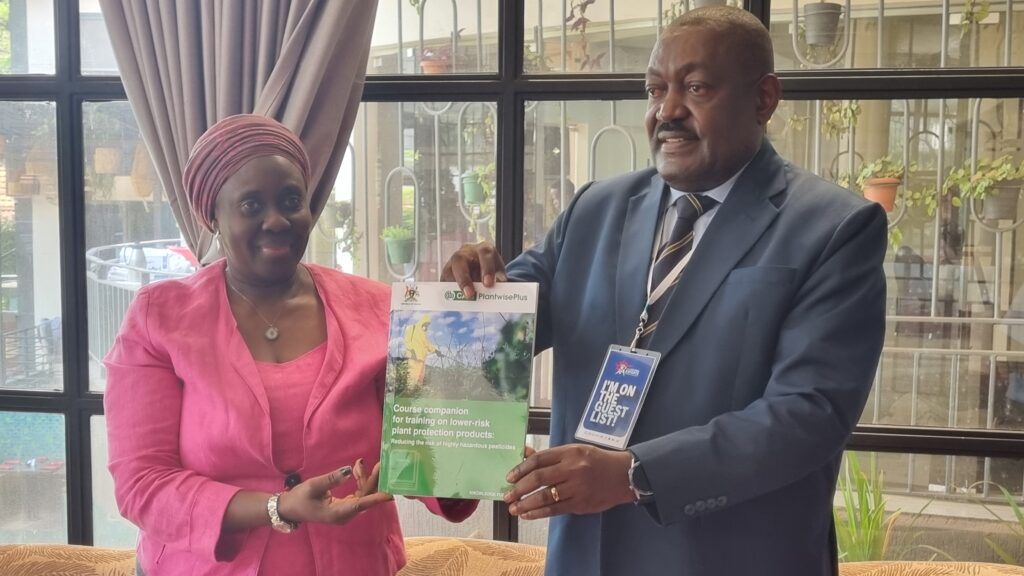Safer pesticide use: Voluntary standard for agro-dealers launched in China
On December 26, 2024, Sichuan Province launched a significant initiative: the “Establishment Specification for IPM Promotion Pesticide Stores.” Written in collaboration with local partners and PlantwisePlus, including CABI’s Dr Min Wan, this new voluntary standard aims to reform agro-shop operations in China. Starting January 1, 2025, it promotes safer pesticide use aligned with Integrated Pest…
Empowering agro-dealers: A toolkit for safer and sustainable farming in Uganda
PlantwisePlus has reached a milestone in relations with the government of Uganda. On 14 November, the programme handed over a training toolkit for a module on lower-risk plant protection products to the Ministry of Agriculture, Animal Industry and Fisheries (MAAIF). A team collaboratively developed the resource to help train Uganda’s agro-dealers. It forms part of…
Chilli black thrips outbreak: supporting Indian farmers to protect crops sustainably
Outbreaks of Thrips parvispinus, commonly known as chilli black thrips or Southeast Asian thrips, are causing challenges for smallholder farmers in India. These tiny, dark-coloured invasive pests are responsible for considerable economic losses, particularly for growers who rely on chilli crops as a primary source of income. Chilli black thrips are notorious for their aggressive…
CABI calls for gender equality for rural women in Pakistan
Every year, Rural Women’s Day is celebrated on 15 October. It recognizes the valuable contributions that women living in rural communities make to agriculture, food security and rural development. In Pakistan, this is important. According to Relief Web, Pakistan’s total female population is over 101 million. However, around 64 million women – more than half…
Celebrating success: Zambian smallholders combat cassava brown streak disease
Cassava is a critical crop to Zambia’s economy and food security. According to a 2019 paper, cassava (Manihot esculenta) is one of the most important root staple crops in Zambia. An estimated 30% of Zambians – over four million people – consume cassava as part of their daily diet. Indeed, this crop is so important…









